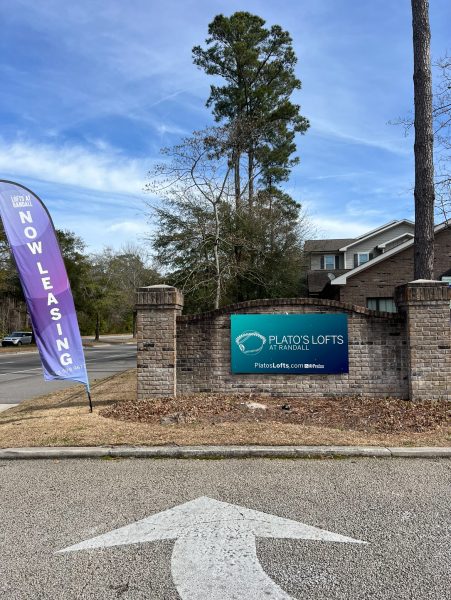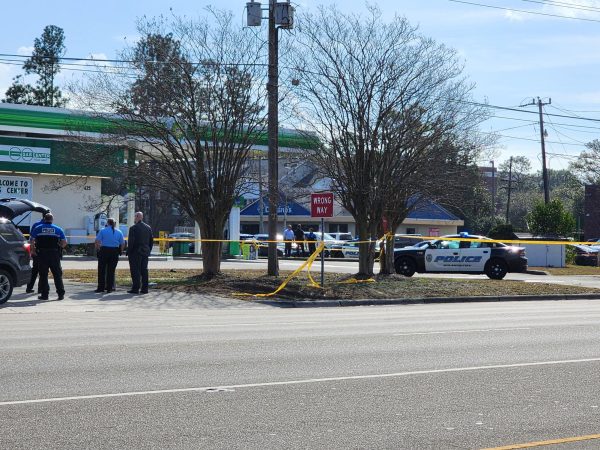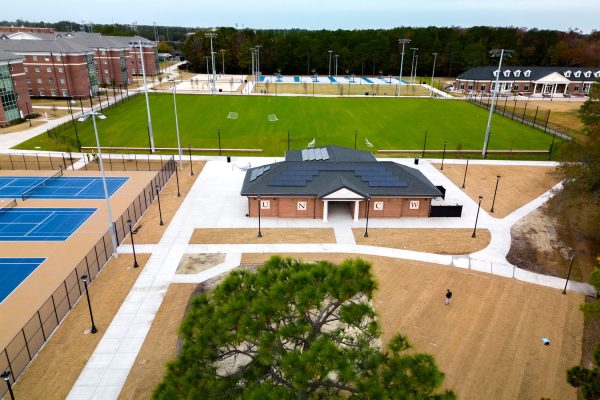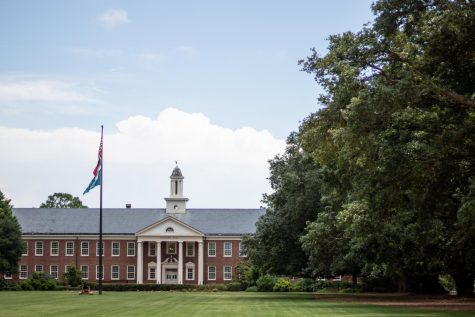Alcohol on campus less of a problem than at other universities
April 30, 2001
UNC Wilmington’s multi-tiered approach to combating alcohol abuse has achieved higher levels of success than many other universities.
During April, campus police representatives from 30 campuses statewide met with Alcohol Law Enforcement Agents and Alcoholic Beverage Control Commission officer chiefs in a series of meetings to discuss state-level strategies to combat alcohol abuse at the local level. The last meeting of the series was held at UNCW.
The presentation-style meetings focused on statewide strategies centered on more astringent enforcement in combating alcohol abuse at the campus level.
The meetings were designed to aid campuses with much more significant alcohol abuse problems than those present at UNCW, according to Maj. Bob Riley, UNCW police representative.
University statistics compiled over the past three years indicate a slight decrease in offenses in which students illegally possess, advertise or consume alcoholic beverages.
Additionally, there is also a slight downturn of student offenses in which the individual is visibly overcome with alcohol, according to Leah Payne, assistant dean of students.
“I think that a lot of the successes that we have had here are based on the proactive approach to counseling and identification of alcohol abuse problems. I think we do a fairly good job here,” Riley said.
Riley said he believed that it was essential to have an integrated approach to combating alcohol abuse, especially at a college level, and that such an approach was necessary for continued success.
“I think the preconceived notion (of the meeting) was that greater enforcement or more aggressive enforcement is a solution. While more aggressive enforcement may be helpful, I certainly don’t think it stands alone as a solution,” Riley said. “I think its naïve to think that alcohol abuse or drug abuse problems are one-dimensional.”
When the university police on campus refer a student to the Dean of Students for an alcohol violation, the student may choose between an administrative hearing or to go before the campus judicial board. The student may then be referred to CROSSROADS for counseling or evaluation.
“Judicial affairs is all about holding students accountable for their behavior, but also working to help them through that particular process because good people make bad decisions.
Good people make mistakes. That’s our whole purpose with our judicial system…is really being able to realize that people will make mistakes,” said Brian Hemphill, associate dean of students.
The system is designed to help students understand the repercussions of alcohol abuse, while offering them a chance to learn the causes and implications of their behavior, according to Riley.
“Everything we do as a police department here, for the most part, from an administration standpoint, is geared toward running alcohol concerns through our campus judicial system because of the tie-ins with the counseling and the evaluation,” said Riley. “I see very little benefit, personally, to cycling people, whether they are students or not, through the court system with alcohol violations when there’s no treatment or counseling that’s ever involved with that.”
One point of concern for schools with larger alcohol problems is that a negative precedent is often set by alumni behavior, according to Riley.
The policy prohibiting alcohol at UNCW has been fairly effective in curbing the problem by eliminating alcohol from all campus events.
“As a result, our problems aren’t nearly as bad as theirs because our administration has taken steps to limit those problems,” Riley said.
By eliminating alcohol completely from the campus environment, the UNCW administration demonstrates, to both students and community members, the importance of constant enforcement for alcohol violations, according to Capt. David Donaldson of the university police department.
“Enforcement is supported by an educational philosophy by the department of student affairs,” Donaldson said.
Hemphill said, “We have a responsibility as a university to ensure that we have an environment that is conducive to learning…A part of our responsibility is to make sure that we are addressing things that violate the spirit of our community.”
In addition to programs provided through CROSSROADS, it is also important to have students help their peers combat alcohol abuse, Hemphill said.
“We can have great programs, we can have great services in place as it relates to alcohol on campus, but …It has to be a grass roots initiative that’s driven by students to truly have the type of impact that you want to have across the community,” he said.
One such organization is Brothers Against Drunk Driving (BADD). The white ribbon campaign, which is expected to be in full swing by April 2002, will unite representatives from various fraternities to raise awareness about the dangers of driving while under the influence of alcohol.
“You are more apt to listen to your peers than someone coming in and lecturing you,” said Dan Faill, the former president of Theta Chi and the creator of the campaign.
Due to the combined approaches of treatment and prevention for alcohol abuse, UNCW has not seen many of the outward symptoms of abuse present on other campuses, such as increased vandalism, fights and assaults, which are often attributed to intoxication by the perpetrator or the victim. The absence of such activities also displays the lesser amounts of abuse present at UNCW, according to Donaldson.





















